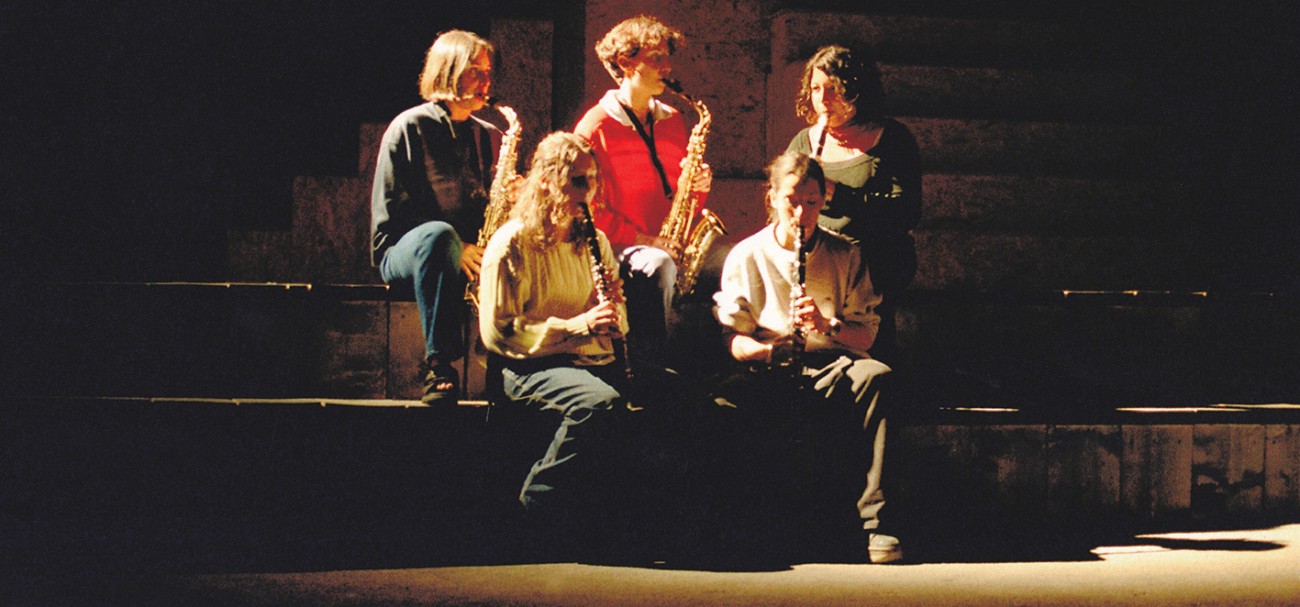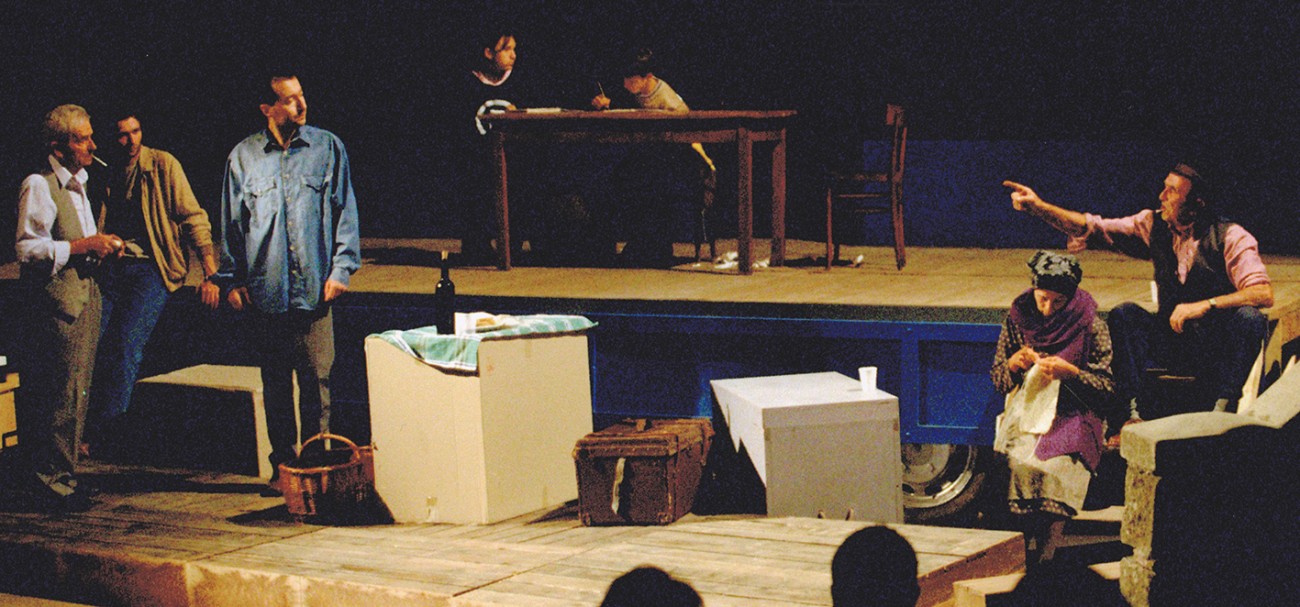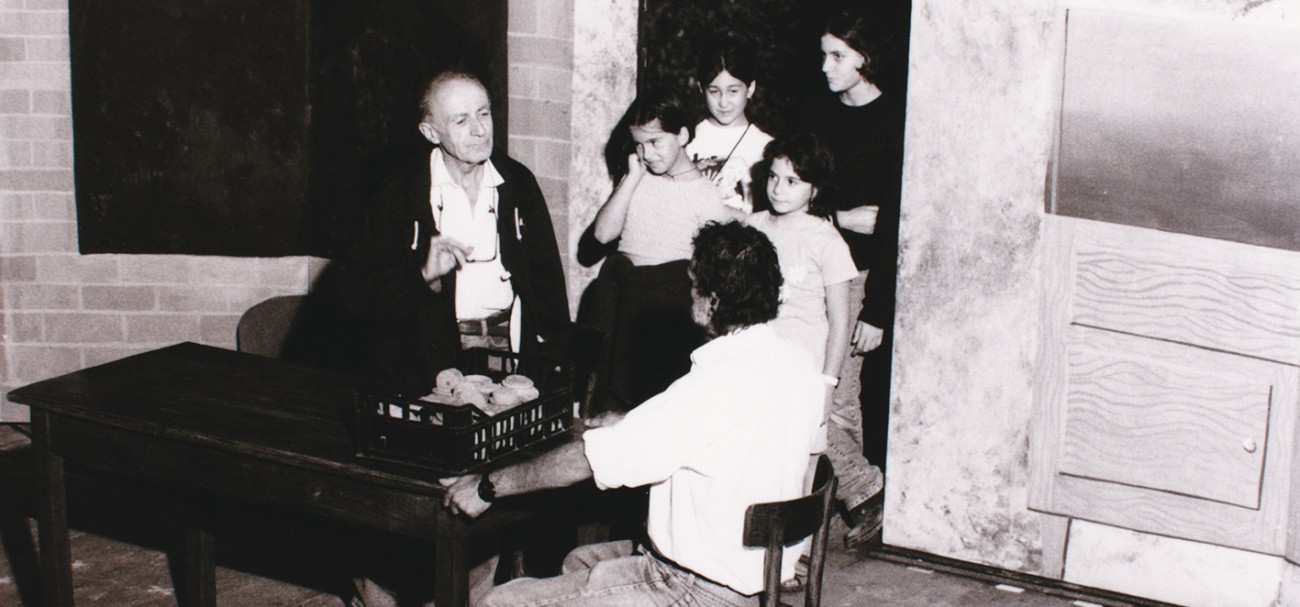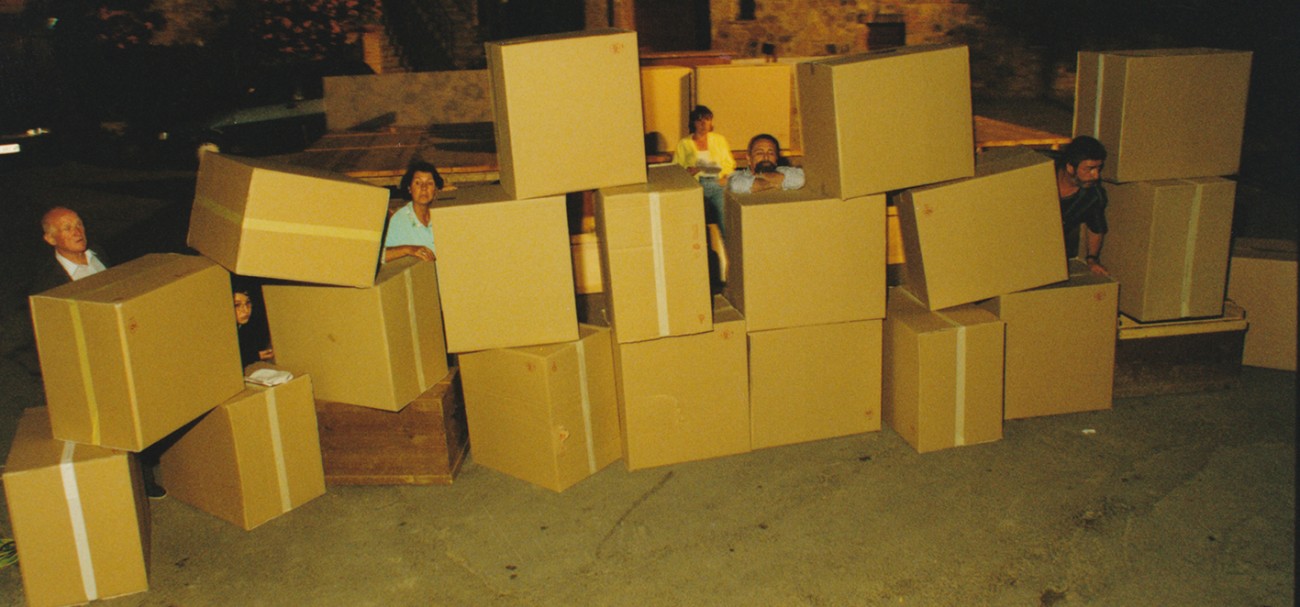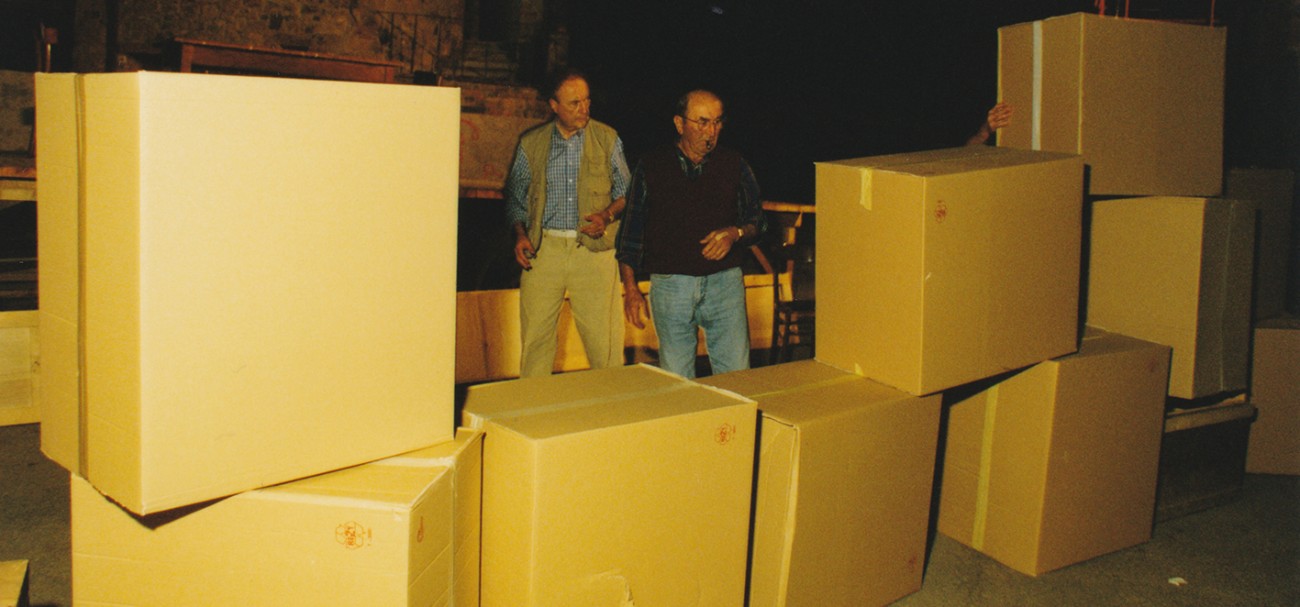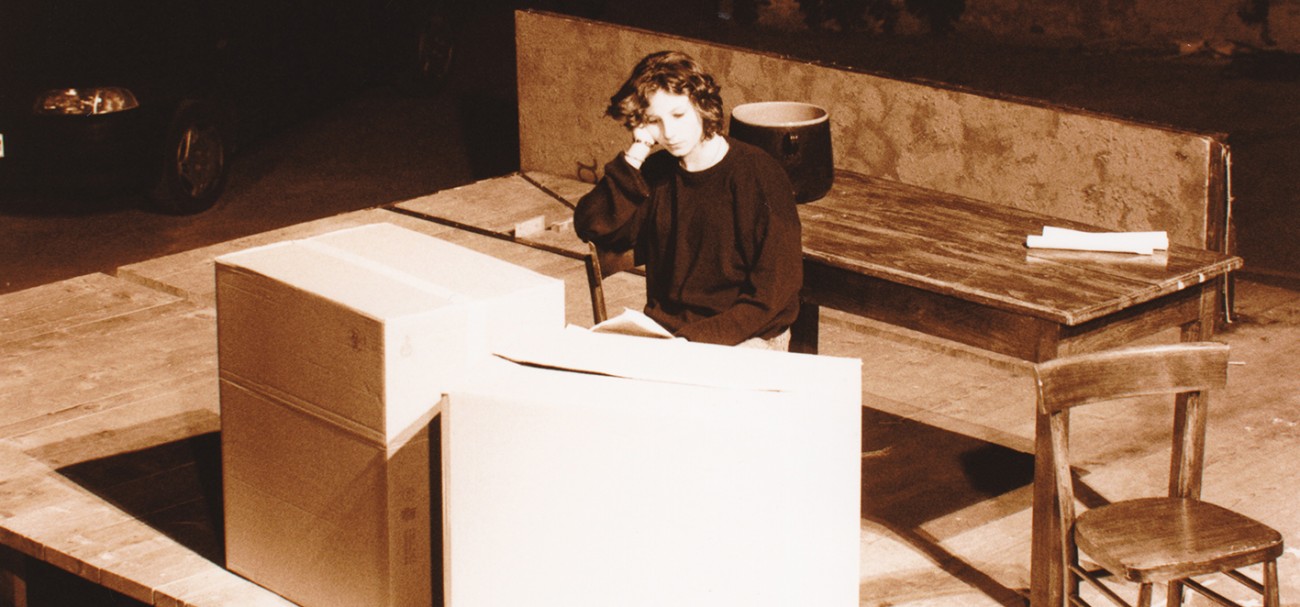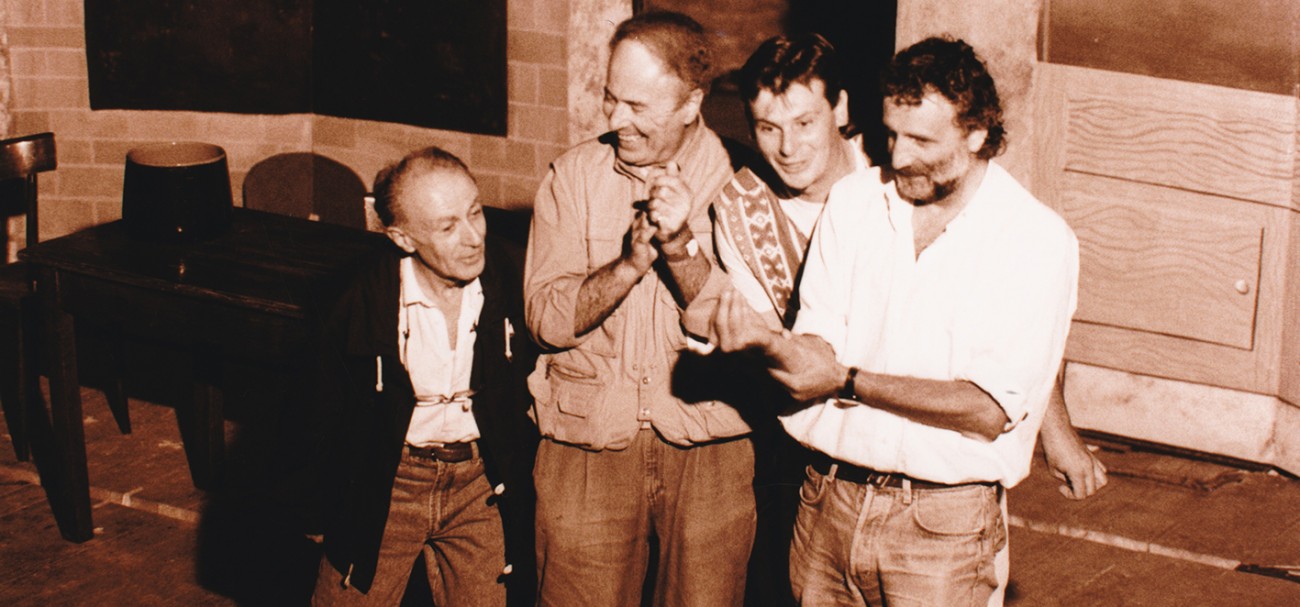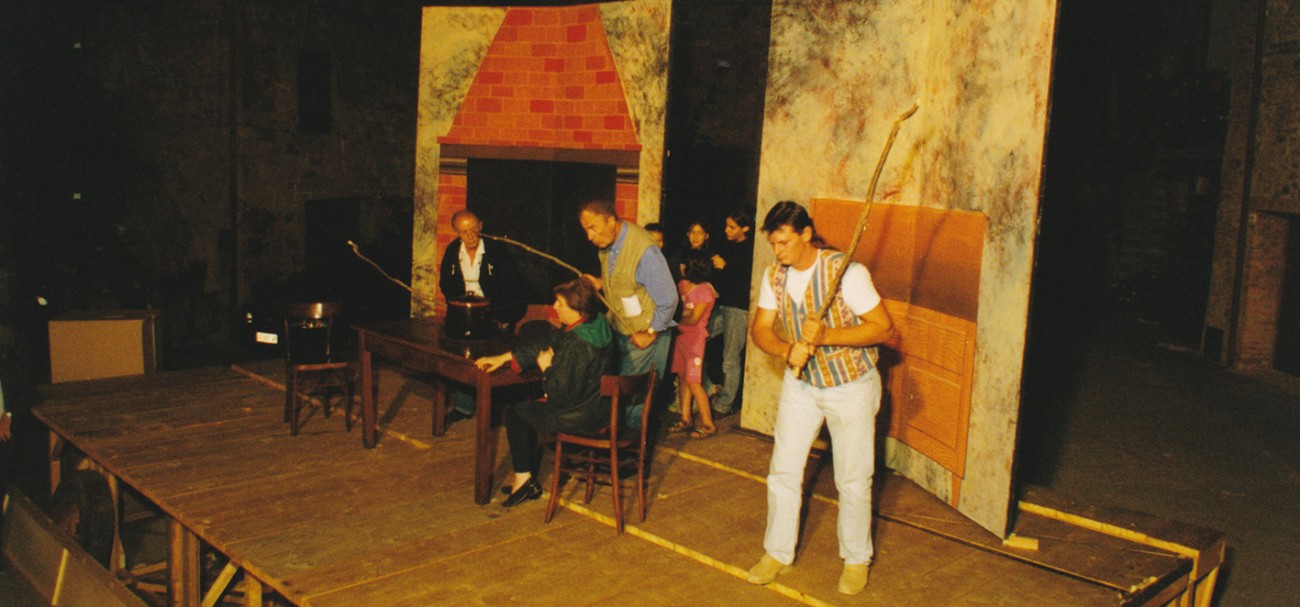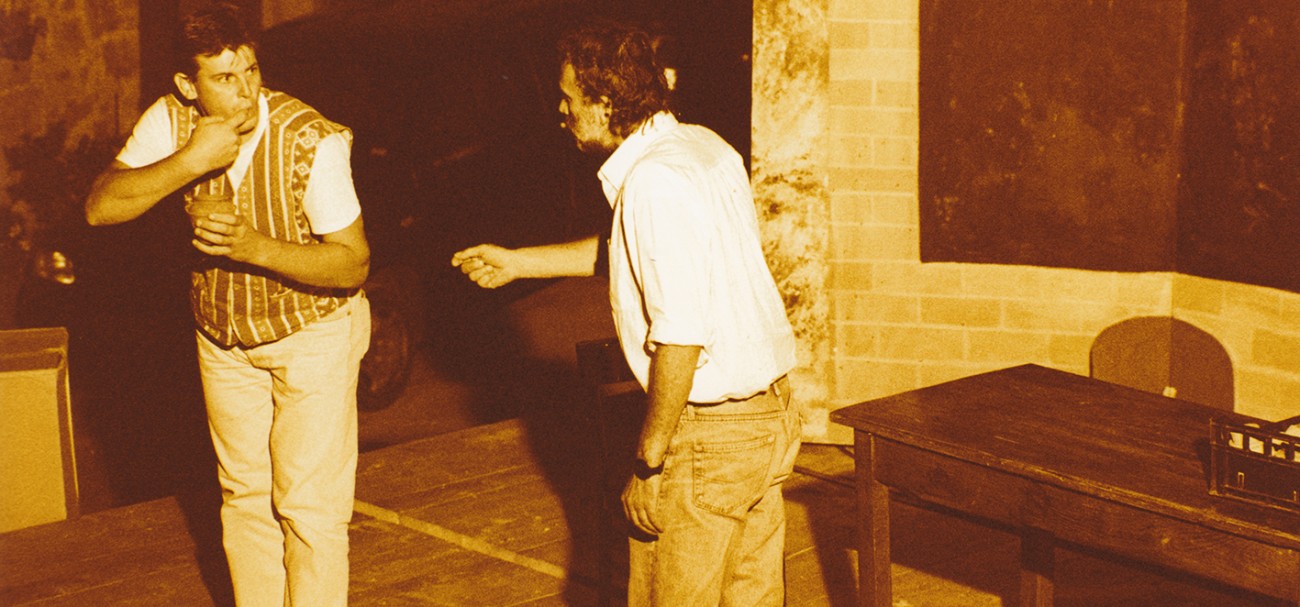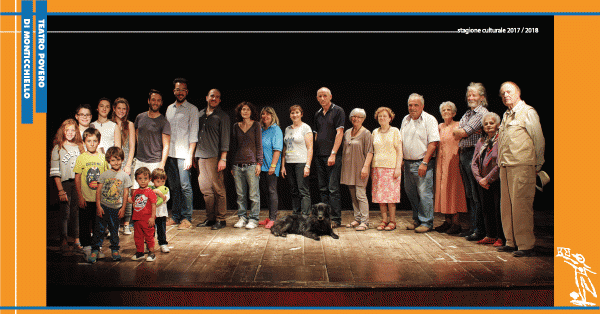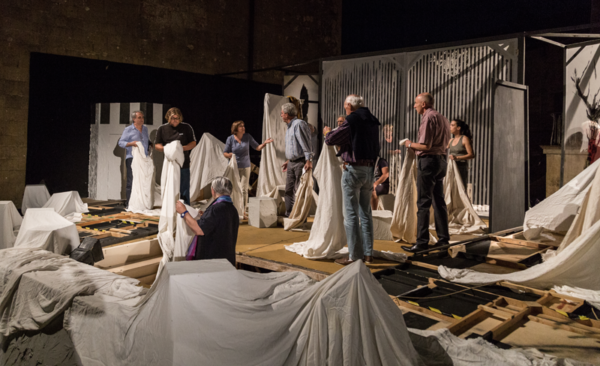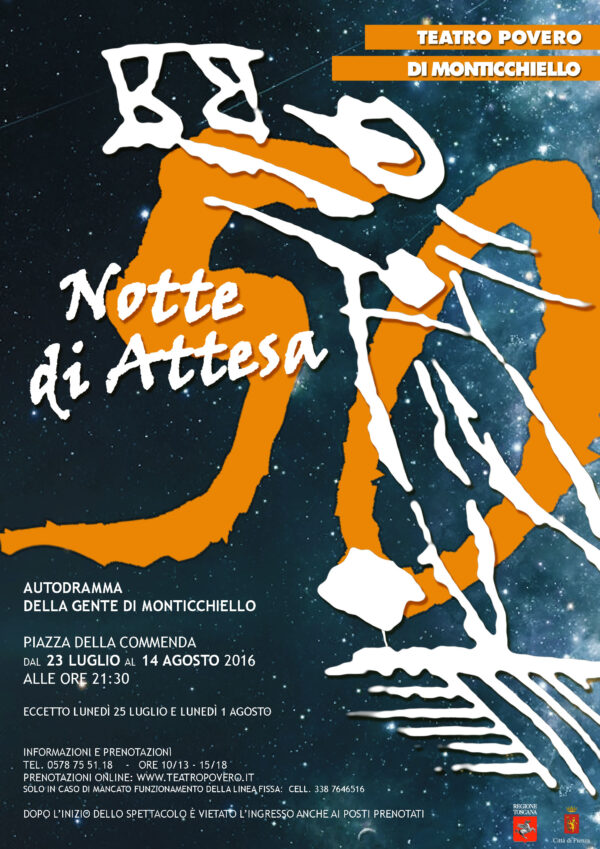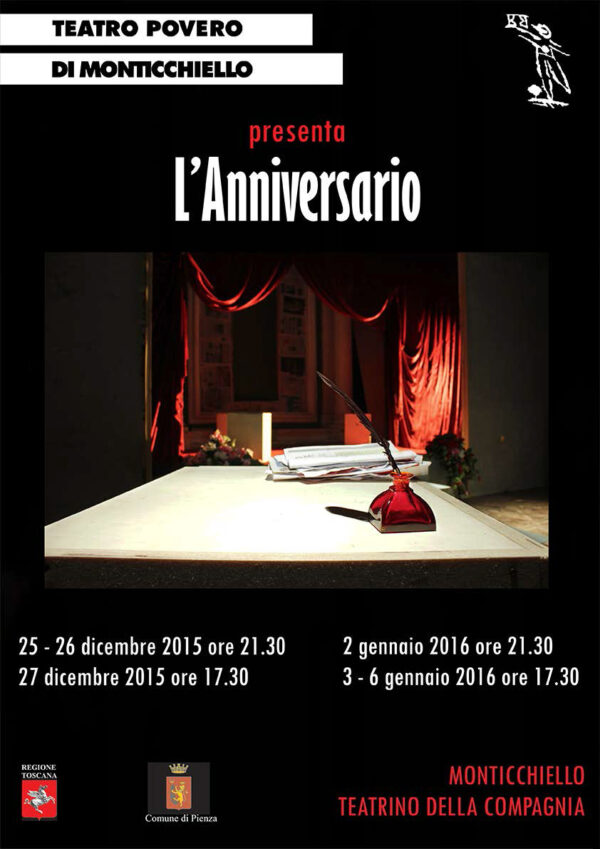A starting point for the 1999 autodramma was a communication from the Italian Post Office to the inhabitants of Monticchiello, saying that the village postal services might have to be closed or their operations reduced. This raised a larger theme of administrative ‘rationalization’, and the question whether a small community can function in a modern economy driven entirely by questions of profit and loss. (In subsequent years, this autodramma was seen as the first of a trilogy of plays all of which dealt with the predicament of a small community in the modern world.)
A fictional situation was shown whereby villages whose population fell below the quota of 300 were required to close down, and move their inhabitants elsewhere. One particular family, packing its possessions and preparing to leave, had to explain the concept of ‘rationalization’ to its children, who had to write about it for a school project. For the older people, this ‘eviction’ from the village by the authorities recalled other evictions in the past, when sharecropping families could be expelled by their landlord and deprived of their home. (For the younger ones, the new departure could appear as an exciting adventure.)
A grandfather narrated an old folk tale to his grandchildren, and the company immediately dramatized it on stage. It was the story of Campriano, a subversive impoverished peasant, who extracts large sums of money from shopkeepers who want to exploit him by telling them impossible lies. His deceits include attributing magical powers to a toy trumpet, which he says can raise people from the dead.
Back in the world of ‘Quota 300’, Monticchiello also decided on stage to resist exploitation, and to build barriers against the bureaucracy of the state. In the end the villagers insisted that Campriano’s trumpet could bring people back to life, and raise the population above the imposed quota.
This autodramma inaugurated a tendency by which the Teatro Povero proclaimed a millenarian fantasy, in opposition to the threats posed by the modern world. Creative imagination, in theatrical form, was offered as a source of defiance, of solidarity, and of hope.

